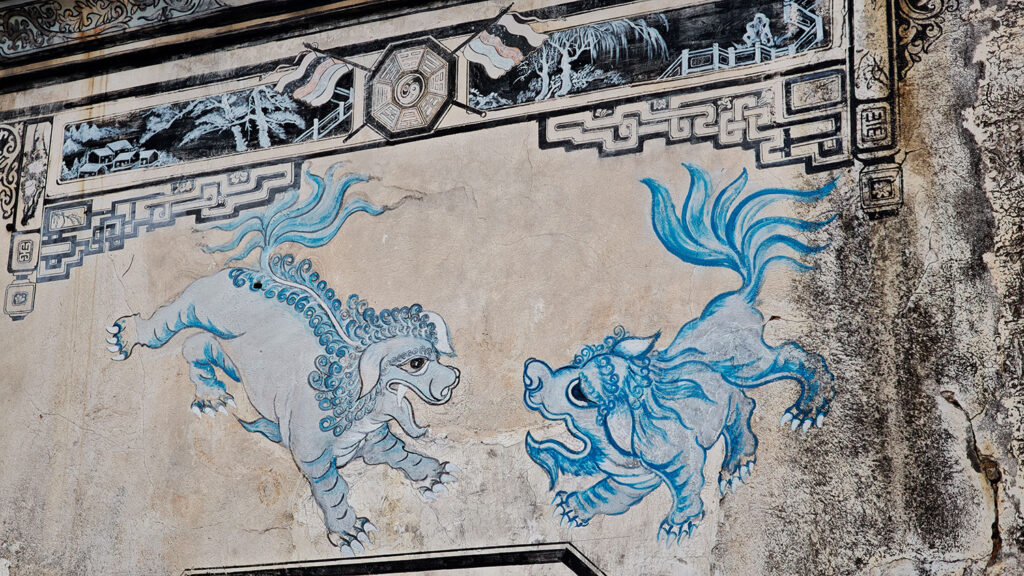There’s a parallel that when you sport and you get bruised, it won’t hurt until after the football match, or the day after the run. There are stories of motorcycles losing a foot on a bend armco, and they won’t notice it until they stop riding and want to use that foot to stand on.
Pain signals that we are vulnerable, not necessarily damage. Pain may be confused with damage, because when you bruise your arm, it feels painful — but you are also extra vulnerable at that place until it heals.
There is damage without pain (like the motorcyclist above), and there is also pain without damage (think about how you touch a hot cup and retreat your finger: you may feel pain for a split second, but your skin is not damaged). But there is no pain without vulnerability. Luca Dellana makes this point on his blog very well.
The whole point is that pain signals vulnerability, not damage.
And if you could apply that to emotional feelings, then emotional pain signals vulnerability — or perhaps maybe a bigger spectrum of emotions, rather than any damage.
Would that be true?
Randall Munroe, in his famous webcomic xkcd, makes the case: “Caring about something makes people vulnerable. So not caring gives you power.”
Maria Stanica writes: “Emotional pain, just like physical pain, is our body’s way of telling us to pay attention — something is wrong. When a relationship causes you emotional pain, you might consider leaving the relationship; when you’re suffering from loneliness, you’ve endured the emotional pain of isolation for too long — and that might spur you to seek out a non-judgmental group of people.”
“Man up”
But while vulnerability may have its virtues, men are often told to toughen up. And so 40% of men don’t talk to anyone about their mental health struggles, and 75% of all suicides are men. These things or thoughts (or depression) are often seen as failure — you lacking something — not to talk about. But usually, sheer willpower and pride aren’t enough to solve this. Yet this is exactly what we are teaching boys. One of the most toxic phrases is “man up”.
Guante wrote ten replies to that phrase, one of them being: “I want to be free, to express myself. I want to have meaningful, emotional relationships with my brothers. I want to be weak sometimes. I want to be strong in a way that isn’t about physical power or dominance. I want to talk to my son about something other than sports. I want to be who I am.”
LiamCasey1997 on Twitter: “Nearly two months ago I was told to ‘man up’ and a month ago I was in the hospital after trying to take my own life. Don’t fucking man up. Talk.”
Matt Haig writes: “I got called ‘gay’ at school for liking books. A ‘big girl’s blouse’ by a teacher for not liking rugby. I was called a coward for not wanting a fight. Mocked as a ‘girl’ for wearing a yellow jacket. Told to be a man when nervous. The pressure boys feel to be unfeeling morons is intense. Resist.”
(It’s also really sad that women and gay men are often used as insults in these situations, which just shows (and reinforces) misogyny and homophobia.)
Resilience shouldn’t be paraded as much as it is
This is all further compounded, especially for young people in big cities. Lib on Twitter writes: “’Resilience’ and ‘grit’ are bullshit neoliberally-applauded indicators of the strong or worthy character of marginalized folks (especially youth) who have been severely and continually overburdened and traumatized by systems that are designed against them.”
Zandashé Brown writes: “I dream of never being called resilient again in my life. I’m exhausted by strength. I want support. I want softness. I want ease. I want to be amongst kin. Not patted on the back for how well I take a hit. Or for how many.”
Vulnerability is a power
We bond well with people who open up to us. I feel trusted when a friend shares something is troubling him or her, and shares that with me. I may not have a solution, but sharing, whether it’s good or bad, helps us both a bit. It is a power that makes me feel trust. Next time I feel uncomfortable, I may also go and find this person. Next time any of us has good news, it’ll be more genuine — because I know a broader spectrum than most.
It also applies to yourself. You should aim for growth, not perfection. Aim for vulnerability, not unbending strength. You start growing further and faster once you stop worrying about keeping up appearances.
I also admire people who go beyond the internet cliché of sharing only the good moments, but also show their vulnerability. I admire Rob Campbell for this, because he just opens up about many parts of his life, the good and the bad.
Being a cushion
But we can all do a bit more to make it easier for others to be vulnerable.
- One is we could actually listen. Few people do.
- Secondly, our answers could be less ‘fake’ positive. Not “You’ll get over it, bad times pass.” but “It’s hard but I’m here for you. I believe in you.” You don’t have to say “Don’t be negative, try to look at the bright side, ok?”, but you can say “It can be difficult to see any good in this situation now, let’s see if we can make sense of it in the future. It’s ok to feel bad now.”
And definitely do not use “man up”.
I didn’t want to make this piece some type of life advice blog.
The whole point I wanted to make is that sometimes, I don’t want to be strong.
Sometimes, I just want to be vulnerable.
Hugged.
Loved.



